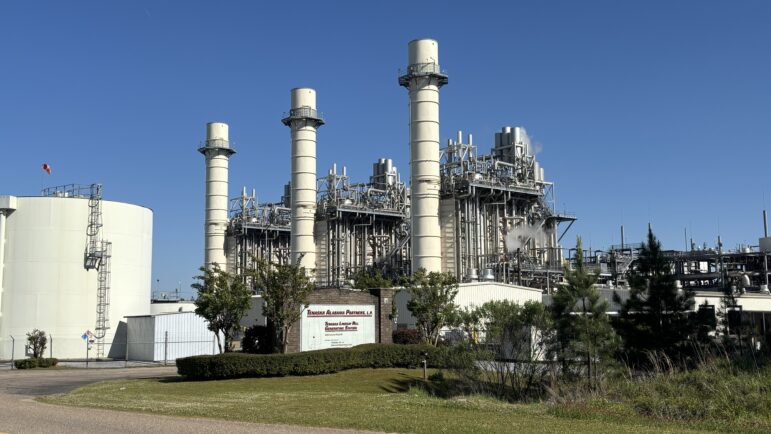This article originally appeared on Inside Climate News, a nonprofit, independent news organization that covers climate, energy and the environment. It is republished with permission. Sign up for their newsletter here.
By Dennis Pillion, Inside Climate News
Alabama’s largest electric utility has proposed delaying an approved rate increase for an extra year amid a public outcry surrounding high utility bills.
Alabama Power customers will still see an increase in bills stemming from the company’s $622 million purchase of the Lindsay Hill Generating Station earlier this year, but not for another year, if the plan is approved by the state’s Public Service Commission.
The rate increase, which Alabama Power said will raise an average customer’s bills by about $3.32 per month, was originally slated to go into effect in January 2027.
“Alabama Power made an informational filing with the Alabama Public Service Commission as part of our ongoing discussions about ways to help customers manage their power bills,” the company said in an emailed statement. “We know budgets are tight, and power bills are a real concern for many families and businesses.”
Alabama Power submitted the proposal in an informational filing with the PSC late last week.
A spokesperson for the PSC said that the proposal will “likely” be presented to the commission at its next regular meeting on Dec. 2.
“The Commissioners could approve the proposal in its current form, offer modifications to the proposal, reject the proposal or table the proposal, pending further information,” the spokesperson said via email. “Either action will require a vote.”
Environmental watchdog groups that follow the PSC cautioned that customers may still see rate increases over the next two years, even if the proposal is approved.
Christina Tidwell, a senior attorney at the Southern Environmental Law Center, said that Alabama Power customers’ bills include numerous rate schedules, many of which were not included in the proposal.
“To fully understand the impact of Alabama Power’s proposal, customers deserve full bill transparency, including a breakdown of each rate included in the bill and how much a customer pays for each rate,” Tidwell said in an email. “Without this information, it is difficult to understand how much of the bill will be frozen. In addition, ratepayers deserve a thorough, transparent review of Alabama Power’s proposal to determine whether rates should actually be lowered rather than held steady.”
Daniel Tait, executive director of Energy Alabama, a nonprofit advocacy organization, said no costs were being waived, only pushed down the road.
“The fine print shows it’s a deferral strategy, not a reduction,” Tait said. “It’s just a broken attempt to help the utility weather a storm of criticism for its high bills and abnormally high profits.”
Alabama Power’s electric rates have been under scrutiny especially since new data center projects could significantly increase demand in the state for the first time in decades.
An Inside Climate News analysis showed that Alabama Power residential customers paid, on average, the highest total electric bills in the nation, thanks to slightly above average rates and extremely high electricity usage.
U.S. Sen. Katie Britt (R-Ala.) said on a recent press call that she wanted assurances that the costs of new data centers will not be passed on to customers.
“We have the highest power rates in the Southeast,” Britt said. “I think that is unacceptable.”
Alabama Power has said repeatedly that new data center customers will “pay the full, fair cost to serve their needs,” including the costs of new infrastructure to meet the demand.
New PSC President Cynthia Lee Almond, appointed earlier this year by Gov. Kay Ivey, published an op-ed highlighting the need to protect Alabama Power customers from rising rates due to data centers.
“Utility bills have spiked in some states as residential and small business customers subsidize the infrastructure investments needed to accommodate big tech,” Almond wrote. “We have a chance to learn from their challenges and avoid them here. Alabama’s main challenge and my priority is clear: make sure our families and small businesses don’t get stuck with the bill.”
In addition to delaying the rate increase from the Lindsay Hill plant, Alabama Power’s proposal would also lock in environmental compliance costs and the fuel cost factor at current levels through 2027.
The company said to make those commitments, it sought permission from the PSC to apply potential customer refunds next year to its natural disaster reserve fund instead, and to use funds from a federal nuclear production tax credit to offset retail costs.
“The filing outlines commitments aimed at providing more certainty and predictability around electric rates at a time when many other costs are rising,” the company said. “We look forward to continuing our dialogue with the Commission on an issue that matters deeply to customers across Alabama.”

